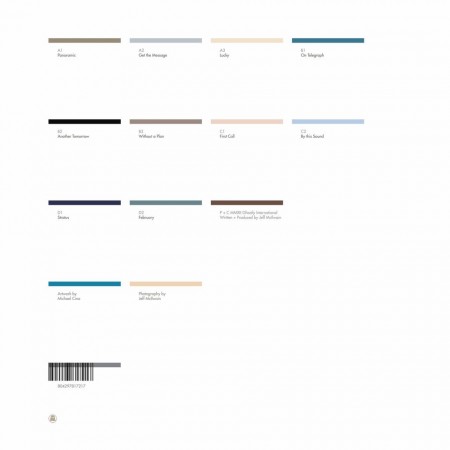Stream New Lusine Album

If I could offer up one electronic album to the world it would be this one, Lusine has always been a wizard when it comes to expansion and beauty, while maintaining the highest quality sound design without it ever being too experimental to drive off any new listeners. Songs like “Stratus” makes you feel like your skydiving in your chair, while “Panoramic” builds up to what feels like your doing donuts in a convertible in slow motion in the desert after the best day with your good friends. HIGHLY RECOMMENDED.
Seattle-based producer Jeff McIlwain’s work has long inhabited the fertile border zone between electronic pop and experimental electronic music — it’s a place that’s home to music that has both a brain and a heart, and McIlwain’s been exploring its boundaries for the best part of a decade now.
The Waiting Room is his third full-length release for Ghostly International under the moniker Lusine, and his first album since 2009’s A Certain Distance. As with all McIlwain’s work as Lusine, this is a record that’s characterized by both diversity and coherency. Its tracks traverse a variety of sonic landscapes, from the widescreen atmospherics of appropriately-titled opening track “Panoramic” through the digital soul arrangement of Electronic’s “Get the Message” and the club-friendly bounce of “First Call” to the slow-building Detroit-inflected closer “February”.
But for all The Waiting Room’s eclecticism, it’s also notable that it plays out as a coherent whole, with McIlwain’s deft production creating the sense of a single, logical journey — an album, rather than a simple collection of tracks. It also continues the excursions into vocal-led tracks that characterized A Certain Distance — exactly half of The Waiting Room’s ten tracks employ vocalists, most notably the aforementioned “Get the Message,” wherein guest vocalist and wife Sarah McIlwain makes Bernard Sumner’s words her own: “I don’t know where to begin / Living in sin,” she sings calmly, “How can you talk? / Look where you’ve been.”
As a whole, this is an album that’s both cerebral and visceral, a record that’s both rewarding of a serious headphone session and also warm and melodic enough to make listening as engaging in an emotional sense as it is in an intellectual one. Many artists flirt with these two extremities of electronic music; few tie them together as well as McIlwain does.

9 Comments Leave A Comment
Exploriment says:
February 19, 2013 at 5:38 pmA new Lusine album?! Deep joy!
Jonathan says:
February 19, 2013 at 6:28 pmAlbum Of The Year
Alexander says:
February 19, 2013 at 9:44 pmMagical stuff on this new record!
Charles Mertens says:
February 19, 2013 at 11:07 pmThis record is amazing. I can’t get over it.
Thomas says:
February 20, 2013 at 1:17 amLP on the way to Aus. Love his new direction. Polished.
Darren says:
February 20, 2013 at 1:03 pmCheaper at Amazon
NAVIS says:
February 21, 2013 at 12:41 amThis album has hit my soul deep and hard. Damn.
MODS says:
February 22, 2013 at 1:38 amOMG blow my mind. These melody’s are great
t says:
February 27, 2013 at 10:59 amI will definitely listen to some of these songs as I sit in my office chair.